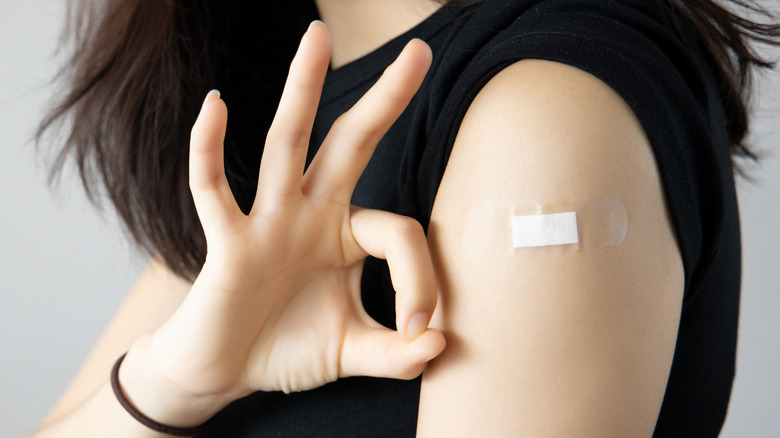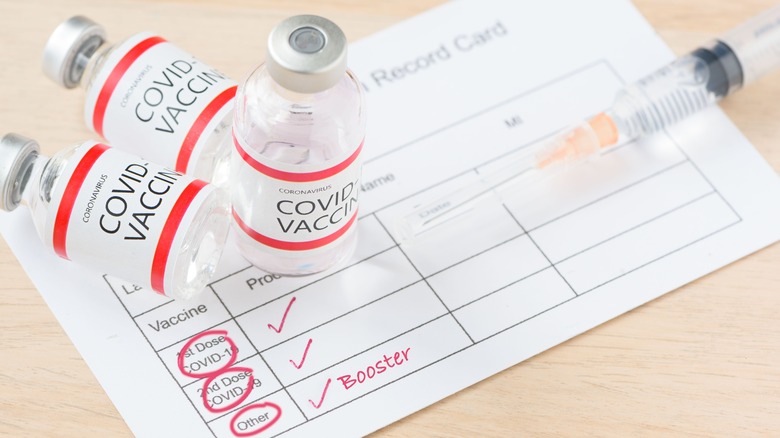What To Know About Bivalent Vaccines
From the flu to COVID-19, now more than ever before, there's buzz about vaccines and how they impact our lives. In fact, the latest COVID-19 vaccines that have just been released by Pfizer and Moderna are said to be bivalent vaccines, according to the U.S. Food and Drug Administration (FDA). But what exactly is a bivalent vaccine, and how does it affect you if you've already opted for the first round of COVID vaccinations?
According to the National Cancer Institute, a bivalent vaccination is one that acts against two different antigens of the same virus. The original round of vaccines against COVID-19 were monovalent, meaning they only offered vaccination against the original strain of the virus; a bivalent vaccine, however, is used when there is more than one strain or variation of a virus, as with COVID-19 and the ever-mutating Omicron variant (via FDA). The FDA approved the use of bivalent vaccines to combat the growing concern of the Omicron variant in late August. Those who have already received the monovalent vaccine may be curious to know how the bivalent vaccine will impact them.
What you need to know about the bivalent COVID vaccine
The bivalent vaccinations being produced by both Pfizer and Moderna offer more effective protection against both the original strain of the COVID-19 virus and the aggressive Omicron variant (via CNBC). In fact, according to the FDA, the Omicron variant is currently the strain responsible for a large percentage of the current positive cases of COVID. This trend is anticipated to last throughout the fall and into the winter. The bivalent vaccines are now being offered at select pharmacies and drug stores, but are anticipated to be more widely available soon, says CNBC. As with the original vaccine, the bivalent boosters are being offered to the public without charge. Local drugs stores like Walgreens, CVS, and some health department clinics are currently administering doses of both the Pfizer and Moderna vaccine. If you're considering taking the booster, you can locate a facility offering the bivalent vaccine by checking vaccines.gov for updated location lists.
Should you get the bivalent booster?
So what should you consider if you're thinking of getting the bivalent vaccine? First, individuals 18 and older are eligible for the single-dose Moderna bivalent booster, while individuals 12 and older are eligible to receive the single-dose Pfizer booster (via FDA). If you received the original vaccine, you can still receive the bivalent vaccine, as it will act as a booster. This is also true if you have received the booster for your original vaccination; however, you should wait a period of at least two months following the booster before receiving the bivalent vaccine. If you've recently had COVID or tested positive, it is recommended that you wait at least three months before receiving the booster, per CNBC. The FDA says you can choose to receive either the Pfizer or Moderna bivalent booster, regardless of the original monovalent vaccine you received. The Pfizer and Moderna bivalent vaccines are showing high effectiveness against the Omicron variant spread. These bivalent vaccines may cause similar side effects as those experienced with the monovalent vaccine, such as fatigue, fever, muscle or joint pain, nausea, and headache.



